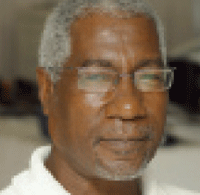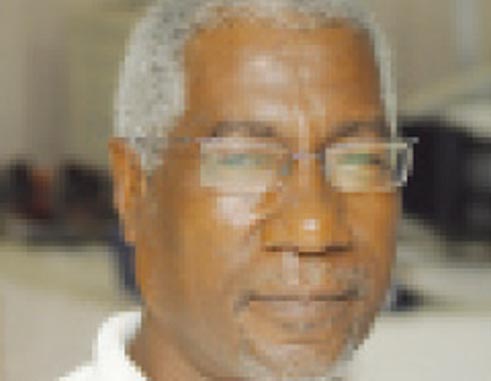
SOCIALISM is being seen as taking a beating in the Caribbean and Latin America
Jamaica’s People’s National Party (PNP) was said to have lost favour with grassroots Jamaicans, partly because it shed its socialist clothing.
In Venezuela and Argentina, left-leaning socialist-led administrations have suffered recent political and electoral defeats. And in Brazil, the left-led administration is reeling under its worst pressure ever at a time when it is most unpopular.
But contrary to the claim that these administrations are losing support because people have turned against socialism, the fact is that in each case they are affected by global economic factors reverberating on the national political landscape.
The economy and jobs are factors that resonate everywhere today. The global economy is still in chaos and unemployment is rising everywhere. The old economic system is breaking down and people everywhere are reacting at the polls.
Americans are no different, as U.S. jobs are being lost too. ‘Free Trade’ has allowed American businesses to shift manufacturing to China at the cost of millions of American jobs, while technology has reduced many traditional American factories into computer-operated plants where robots and machines have replaced humans.
America isn’t seen as taking care of Americans as it should today, so many American voters are rallying behind Bernie Sanders and Donald Trump.
Never mind Hillary Clinton is still being the favoured Democratic candidate, Sanders’ support continues to grow as he continues to connect with more Americans of different political, social and ethnic complexions.
The USA and Saint Lucia election campaigns continue to share some remarkable coincidences.
Sanders and SLP Leader Dr Kenny Anthony are both selling social democratic principles to electorates also being offered contemporary versions of free enterprise capitalism. On the other hand, Anthony is also being challenged by Saint Lucia’s own domestic version of Donald Trump.
Like Trump, UWP Leader Allen Chastanet’s economic philosophy is based on the traditional capitalist formula of strengthening the private sector to enable it to create jobs for the poor. And like Trump too, the son of a successful local businessman is being touted by Anthony and the SLP as being hitched to the accumulated economic power of family wealth.
Anthony has been successful at blending his social democratic thinking with the challenges emerging from the new Caribbean socio-economic realities. He has repeatedly stressed that Saint Lucia’s reluctant adoption last year of a Citizenship by Investment Programmes (CIPs) was influenced mainly by several other CARICOM states having adopted similar policies that also impact Saint Lucia.
Similarly, last year — before the his administration started restoring growth to the island’s economy, Anthony said (as Prime Minister and Finance Minister) that, painful as it would have been, he was also prepared to face the International Monetary Fund (IMF) — if that became an absolute necessity for restoration of economic stability.
But throughout each of the three administrations he’s led since 1997, Anthony has always ensured that government’s popular social programmes targeting the poor are adequately catered for in each annual national budget.
Anthony will be counting on popular support for his administration’s attractive social protection policies and his demonstrated ability to be a safe economic helmsman to keep the UWP out at the upcoming polls. And, like the situation facing sanders, Anthony’s chances of keeping the SLP in office will not only depend on continued attraction to his popular policies, but also on how they react to some of the scary and outlandish Trump-type UWP campaign pronouncements.
Chastanet’s alarming claims (so far) include: The U.S.A., Canada and the EU are planning various sanctions — including visa withdrawals and other restrictions — on Saint Lucians, if the SLP is returned. And the U.S.A. will also punish Saint Lucia — and other CARICOM and OECS member-states of PetroCaribe, ALBA and CELAC, MERCOSUR, etc — for doing business with Venezuela under Chavez and Maduro.
However, signs are emerging in Saint Lucia — like in the U.S.A. and everywhere else — that new thinking is changing — particularly in young people’s perceptions of politics and what they consider the real issues.
Organized youth groups in Saint Lucia have been inviting competing candidates from the island’s two major parties to participate in Town Hall-type public debates in each constituency, to present their plans and answer questions from electors. The SLP agreed, but the UWP didn’t — leading to warnings from within that it should learn from Jamaica, where the PNP had also refused to participate in planned pre-election debates.
Young Saint Lucians – like youth everywhere else — are also using the social media and their ICT skills to express positions and influence the pace of spreading party messages across various IT platforms.
Youth apathy has always been a Caribbean political constant, but that too is changing. More Caribbean youth are today using their access to the whole wide world of information at their fingertips that allows them to more easily search and find the alternative truths they seek.
There are clear signs of seismic climate change on the Caribbean political horizon, as the region re-enters another historical phase where people are being challenged to make changes based more on what they feel than what they hear, what they know and not what they’re told, what they need instead of just what they want – or what may have been promised.
Caribbean people also generally speak out louder today than ever before about the global social, political and economic issues that affect them. But the signs are that Caribbean youth are today emerging from the apathy of the past and showing they are ready or can be persuaded to help change the politics that has shut them out for so long.
The region’s virgin political minds are also fertile grounds for planting and nurturing seeds for their creative imagination of a possible new variation of socialism with Caribbean characteristics.
They can help shape models that will offer the outlines for a wider template, not only for the rest of the world’s small island states, but also for every other country willing to adopt, adapt and flex according to their own climes.
(Conclusion: Part 4 in Weekend VOICE)






